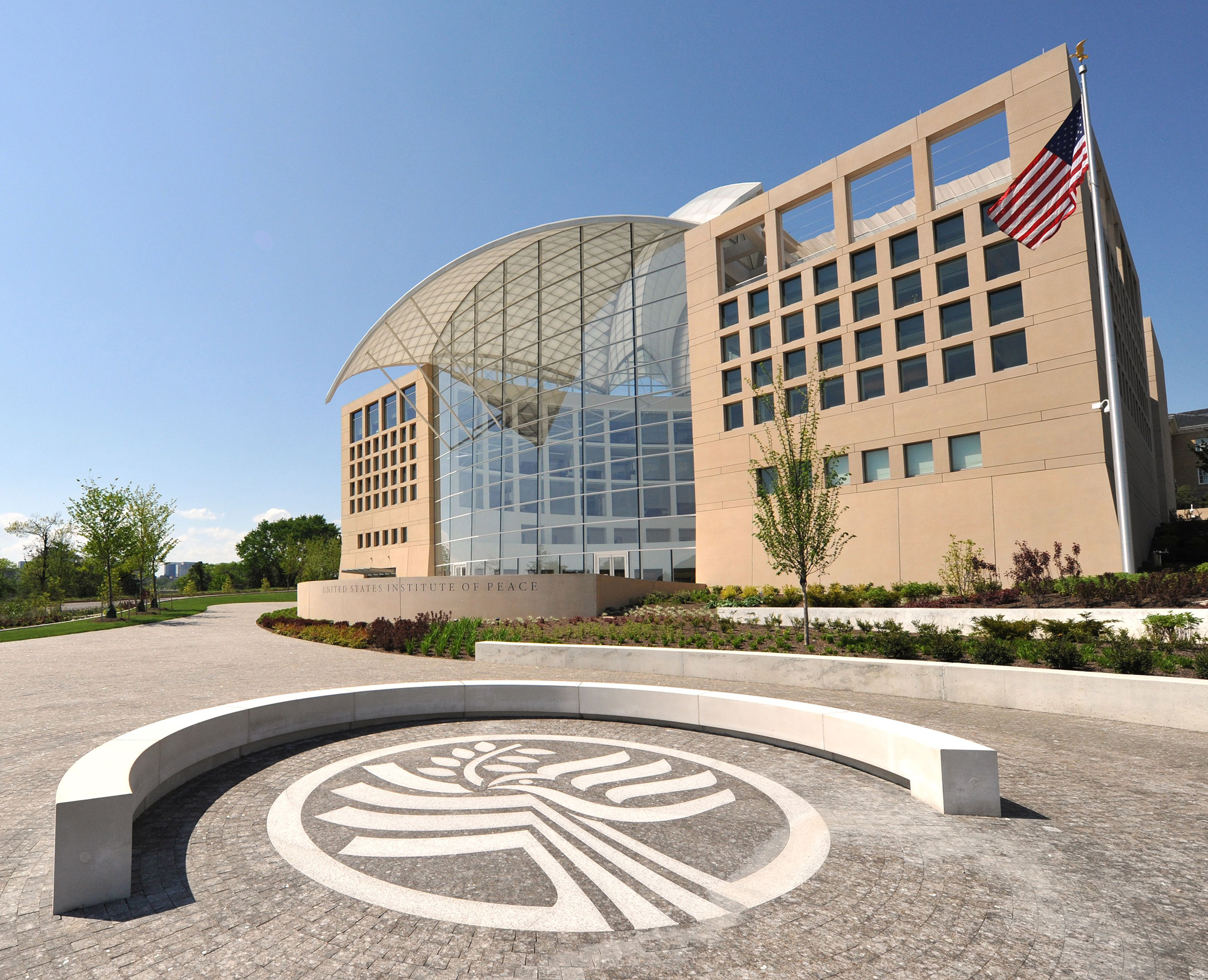
(RNS) — Earlier this week (May 19), United States District Court Judge Beryl Howell ruled the Trump administration’s efforts to dismantle the U.S. Institute of Peace were unlawful.
This follows President Donald Trump’s Feb. 19 executive order in which his administration resolved to dismantle USIP under the pretext of reducing federal agencies to cut government waste and abuse. The administration fired its governing board and staff and transferred its assets to the General Services Administration.
USIP is an independent, nonpartisan and nonprofit corporation. It is neither part of the federal government nor subject to its executive control. In bipartisan action in 1984, under President Ronald Reagan, Congress established USIP to promote conflict resolution and prevention worldwide. It was created at the urging of many faith communities, including mainline Protestant groups — like the United Church of Christ, Quakers, Mennonites and Church of the Brethren — as well as Reform Jews and some Catholic organizations. The institute only receives partial funding from U.S. Congress and is governed by a nonpartisan board to minimize external influences.
The judge wrote in the decision: “The president’s efforts here to take over an organization outside of those bounds, contrary to statute established by Congress and by acts of force and threat using local and federal law enforcement officers, represented a gross usurpation of power and a way of conducting government affairs that unnecessarily traumatized the committed leadership and employees of USIP, who deserved better.”
As the executive director of Religions for Peace USA — the largest and most broad multi-religious forum in the U.S., with member organizations from more than 50 religious communities representing each of the major faith traditions — I believe USIP is more critical to our work and global partners than any other U.S. organization. It works to end conflicts worldwide and promotes a safer world for our children and grandchildren.
Religions for Peace USA is a national affiliate of Religions for Peace, which supports a network of nearly 100 national and regional global interreligious affiliates. We seek to improve civil society’s well-being and advance faith-based peace-building efforts and reconciliation worldwide.
A key function of USIP, like the RfP network, has been to provide a platform for interfaith dialogue, peacemaking and collaboration among diverse stakeholders in conflicts worldwide and at home. Here are some examples of USIP’s work abroad and domestically:
Iraq: Facilitated interreligious reconciliation efforts among Sunnis and Shias after the U.S. invaded Iraq in 2003 and led the charge to hold a high-level dialogue in 2007 that resulted in a declaration condemning religiously motivated sectarian violence.
Nigeria: Worked to counter Boko Haram by forming a Muslim-Christian partnership to build trust among religious leaders and their communities.
Colombia: Provided training for faith-based mediation for post-conflict reconciliation.
Myanmar: Engaged Buddhist leaders in Myanmar to counter hate speech against Rohingya Muslims.
United States: Through its Religion and Inclusive Societies Program, USIP provides training and gatherings of U.S. religious leaders to equip religious communities to support domestic conflict transformation and contribute to global peacemaking.

People stand outside the headquarters of the United States Institute of Peace, March 18, 2025, in Washington. (AP Photo/Mark Schiefelbein)
The RfP network has also been a key player in mediating numerous global crises caused by conflict, including in Kosovo, Sierra Leone, Liberia, Ethiopia, Eritrea, Kenya, Burundi, Somalia, Uganda, Rwanda, Democratic Republic of the Congo, South Africa, Sri Lanka, Thailand, Philippines, Myanmar, Iraq, the Holy Land and Syria. As an example, when armed conflict began in 1991 in Sierra Leone, Religions for Peace convened the Inter-religious Council of Sierra Leone, with Muslim and Christian leaders working across religious boundaries to stop the civil war. The council was influential in the 1997 release of 50 child hostages and played a key role in the peace talks. The council president was later appointed chair of the Truth and Reconciliation Commission of Sierra Leone.
The RfP Network has often worked collegially with USIP to achieve peace and security in challenging situations, especially when military and traditional government diplomacy is either impossible, failing or left seriously wanting. It is track II diplomacy — we share a vision of a hopeful world that is more than the clickbait with blood, bombs and bad news, and like USIP, we know it requires careful and deliberate on-the-ground work.
USIP has been a beacon of hope, effectively transforming conflicts worldwide and at home. The recent court ruling ordering USIP to resume its crucial work is a cause for celebration. While we anticipate the Trump administration will appeal the ruling to a higher court, now is the time to stand in solidarity with USIP and its peace mission. Let us unite in this cause.
Speaking up and making our voices heard on this issue is crucial. While former Chief Justice William Rehnquist cautioned against the court basing decisions on public opinion or political pressure, he acknowledged that overwhelming public sentiment was hard to ignore and could affect the justices.
The Trump administration’s proposed budget, which allocates $150 billion more for defense spending while shutting down institutions like USIP, is a stark reminder of the choices we face as people of faith. Do we stand for militaristic dominance or the transformative power of peacemaking? Let us turn to the wisdom of our respective faiths to guide our responses.
Let us be upstanders who are constantly seeking options for peace.
(Tarunjit Singh Butalia is executive director of Religions for Peace USA, board member of Faith in Public Life and founding trustee of the Sikh Council for Interfaith Relations. The views expressed in this commentary do not necessarily reflect those of Religion News Service.)
